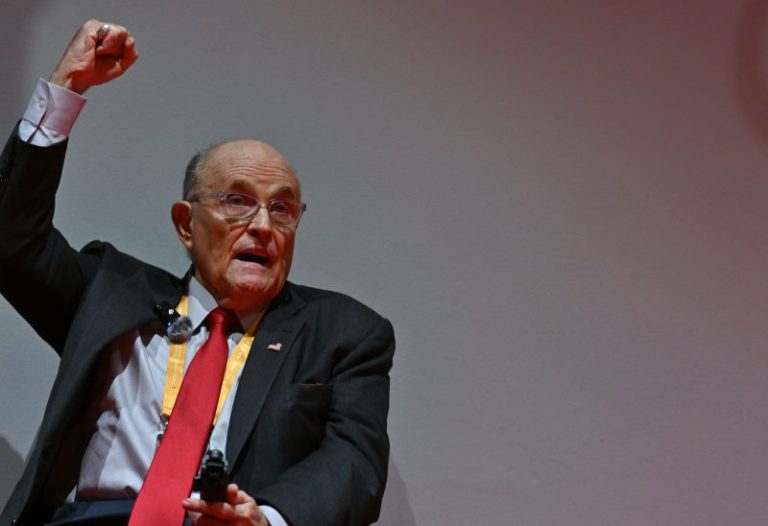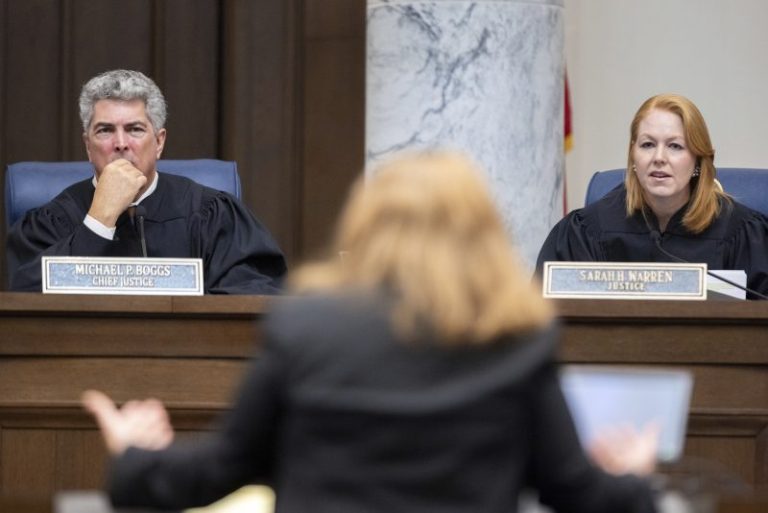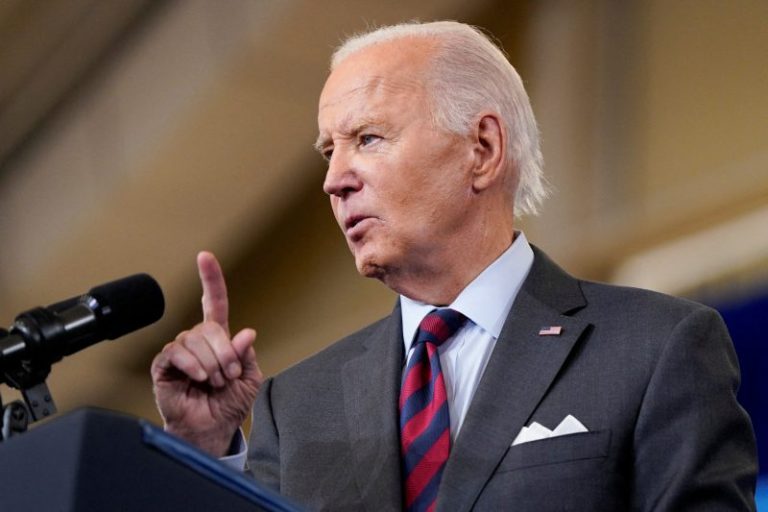A federal judge has ordered Rudy Giuliani to place numerous assets, including cash, jewelry and his New York apartment, into a receivership controlled by two former Georgia election workers as they seek to collect a $148 million defamation claim against the former lawyer for Donald Trump.
Before former president Donald Trump addressed the audience at a meeting of religious activists in North Carolina on Monday, his son offered some thoughts.
After suggesting that his father survived the attempt on his life earlier this year thanks to divine intervention, Eric Trump told the audience that “we need God in our life. We need God in society. We need children to respect God. We need God in our schools. And if [Vice President] Kamala Harris won’t say it, I will: We love God, and we will always be a nation of faith.”
Both of the major-party presidential candidates describe the election two weeks from now as determinative for the future of the nation. Many or most of their supporters, it seems safe to say, concur with those assessments: that America is at a fork in the road, and voters will determine which route the nation takes.
DORAL, Fla. — Republican nominee Donald Trump used a racist stereotype to attack Vice President Kamala Harris and described his desire to exercise “extreme power” as president during an event Tuesday that was billed as a summit to highlight his support among Latinos.
“I was going to hit her really hard on the trail today, but now I don’t have to, because she’s off,” Trump said of Harris, who is spending the day in Washington between campaign travel on the other days of the week. “You know why? She’s lazy as hell, and she’s got that reputation.”
The Georgia Supreme Court has declined to reinstate an array of rules approved this year by a pro-Trump majority of the state’s election board that a lower court judge had tossed last week after calling them unconstitutional and void. The decision all but ensures that the rules will not be in effect for the November vote.
MADISON, Wis. — Barack Obama appeared at a rally Tuesday with Democratic vice-presidential nominee Tim Walz, marking the former president’s first event with a member of his party’s ticket since Kamala Harris launched her presidential campaign in July.
Both Obama and Walz, the governor of Minnesota, implored a crowd of thousands in Wisconsin’s capital on the first day of early voting in the battleground state to cast their ballots early.
Welcome to The Campaign Moment, your guide to the biggest developments in the 2024 election, where strange bedfellows make for fascinating politics.
Before we start, make sure you’re signed up for this newsletter. And also make sure you’re subscribing to “The Campaign Moment” podcast on Apple Podcasts, Spotify or wherever else.
CONCORD, N.H. — President Joe Biden sparked controversy Tuesday with a new attack line against former president Donald Trump, telling Democrats, “We’ve got to lock him up,” before moderating to suggest he meant figurative rather than literal incarceration.
After listing several dangers posed by a potential second Trump presidency at a Democratic Party campaign office here, Biden said: “I know this sounds bizarre. It sounds like, if I said this five years ago, you’d lock me up. We’ve got to lock him up.”








